Confessions of a Coprophagiac – Dogs Who Like to Eat Poo
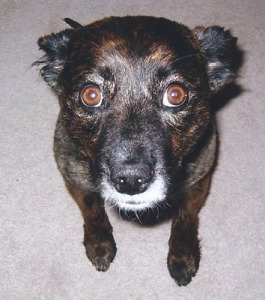 “My name is Bubbie, and I used to eat my own poo. That was up until I was one, when I kicked that “nasty” habit with the help of my “owner” (or so he likes to be called). I still eat rabbit poo every chance I get. What can I say? I am a coprohagiac and I just can’t help it.” ~ Bubbie Foster
“My name is Bubbie, and I used to eat my own poo. That was up until I was one, when I kicked that “nasty” habit with the help of my “owner” (or so he likes to be called). I still eat rabbit poo every chance I get. What can I say? I am a coprohagiac and I just can’t help it.” ~ Bubbie Foster
Say What?!
Coprophagia (the ingestion of feces) is unfortunately an all too common problem many dog owners face. The worst part is, after having their “little brown treat”, your loving dog may come over and try to lick your face…leaving you thinking “Oh great (and perhaps a few choice words), this is not what I signed up for, WHAT IS WRONG WITH YOU ROVER?!”.
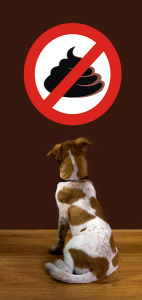 Why on Earth?!
Why on Earth?!
Natural behaviour: A nursing mother stimulates very young pups to eliminate by licking their hind ends, then ingests the feces to keep the nest clean. It may be considered a normal exploratory behaviour in pups that may or may not be outgrown.
Funzies: Stool left out to freeze in the winter time may become fun toys (poop-sicles) to toss around and eventually ingest. Some dogs actually find feces appetizing so it is a self-rewarding behaviour.
Medical/Behaviour Issues: Anemia, malnutrition, parasites, separation anxiety, or a fear of an “accident” being discovered can all be potential causes of coprophagia. If this new undesirable behaviour begins, please have a veterinarian examine your pet to ensure any potential medical issues are being addressed, as well as for behavioural advice.
What Can I Do?
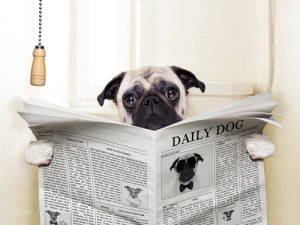 Sanitation: The best way to break the habit once medical concerns are ruled out is to remove access to the stool by picking it up immediately. Most dogs will eventually forget about it if it simply is not there.
Sanitation: The best way to break the habit once medical concerns are ruled out is to remove access to the stool by picking it up immediately. Most dogs will eventually forget about it if it simply is not there.
Positive Reinforcement: A dog very intent on eating it may be faster on the draw than the pooper scooper. If this is the case, try a leash with a head harness to control the mouth, while at the same time calling the dog to you. Deliver a treat once he leaves the stool and comes to you. Back away a few feet, call him and when he comes, deliver another treat. Do this a few times and he should have forgotten about the stool. Take him inside and return by yourself to clean the poop. Over time, you can begin to clean up with the dog outdoors with you.
Food Additives/Diet: There are food additives that can make the stools taste less desirable, however speak with your veterinarian to ensure they are safe for your pet before trying. A change in diet may help curb coprophagia, either because it is more nutritionally balanced, or the consistency and taste of the feces changes making it less desirable.
Although coprophagia is an unpleasant behaviour, rest assured you are not alone dealing with this “dirty little secret”. Numerous ploys have been attempted to curb the behaviour, some with more success than others, but usually one can find a technique that works after some experimentation. And don’t forget, there are many breath freshening dog treats out there…
Recommended Posts
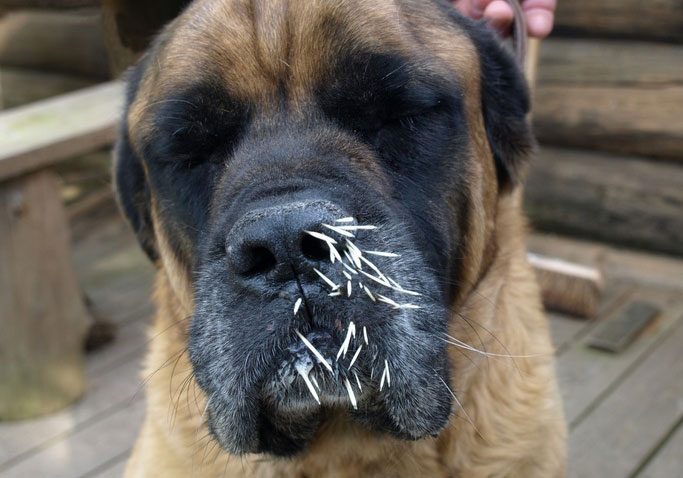
Porcupine Quills in Dogs … Oh My!
July 09, 2017
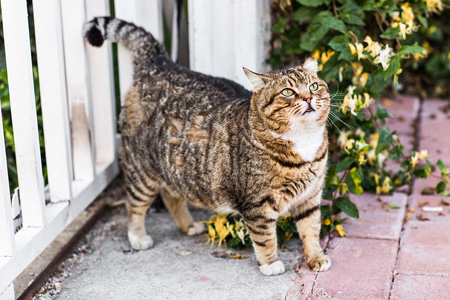
Obesity in Pets
January 11, 2017
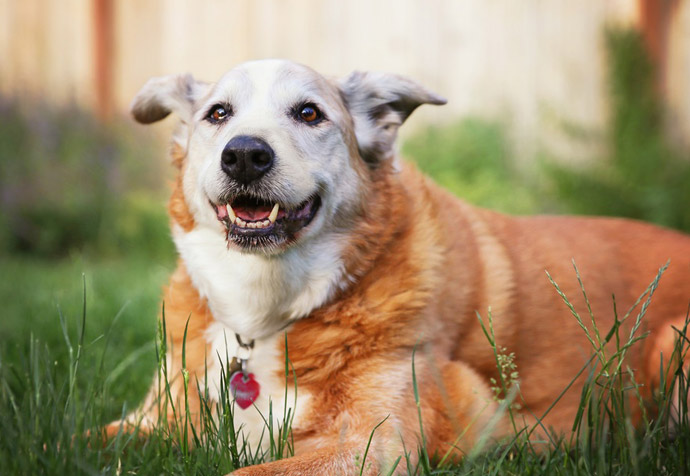
Senior Pets – Ways to Help Fido in His Later Years
June 08, 2016

